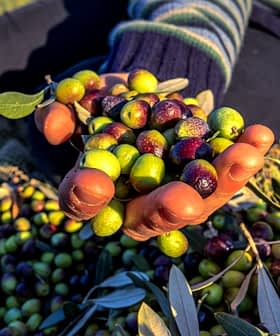The first Latin American Olive Oil Congress is currently underway, with representatives from Argentina, Australia, Brazil, Peru, Spain and Uruguay gathering digitally to discuss a range of topics.
Speakers with diverse scientific and production backgrounds are presenting their latest research and ideas on agronomic practices, technology, olive oil quality and the use of olive oil in non-edible applications.
(It) is in some way the recognition that Latin America has become important worldwide as a supplier of olive oil.
The conference was initially scheduled to take place in the Uruguayan capital of Montevideo, but the resurgence of the Covid-19 pandemic on the continent and severe travel restrictions put in place, as a result, moved the event online.
Instead, all 24 presentations have been prerecorded and uploaded to the conference website, hosted by Uruguay’s University of the Republic. The presentations are available on-demand for conference attendees to view at any time.
See Also:Cultivating Olive Oil Culture Through the Recognition of Heritage TreesA combination of digital forums and a scheduled live question and answer session allow presenters to interact with participants. The live session will take place on Wednesday and serve as the conclusion of the event.
Mónica Bauzá, an agronomist from the National University of Cuyo in Argentina, is among the headlining presenters at the conference.
She told El País that both the format and content of the conference are reasons for South American producers to be excited about the future.
“I feel a total admiration for the organizers of the conference because I had never done such an olive oil-specific one,” she said. “We are talking about virgin olive oil and it’s the first big step for a big move.”
“We are even looking to do the second in Mendoza, but we must see, due to the pandemic situation,” she added. “It is a very transcendental step that has been taken and hopefully, it will continue.”
Emma Parente, a pharmaceutical chemist researching the use of olive oil in cosmetics and fellow presenter, agreed that the conference is an important step for the South American olive oil sector.
“[It] is in some way the recognition that Latin America has become important worldwide as a supplier of olive oil,” she told El País.
“[The conference] is a very interesting opportunity to show the importance of work around olive oil, both of those who are in charge of its production and improvement, as well as those who work in research related to it,” she added.








